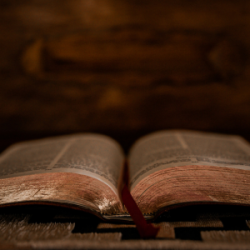
With Palm Sunday approaching, our reading this week is from Matthew:
As they approached Jerusalem and came to Bethphage on the Mount of Olives, Jesus sent two disciples, saying to them, “Go to the village ahead of you, and at once you will find a donkey tied there, with her colt by her. Untie them and bring them to me. If anyone says anything to you, say that the your Sovereign needs them, and he will send them right away.”
Welcome Readers! Please subscribe to Social Jesus Here.
This took place to fulfill what was spoken through the prophet:
“Say to Daughter Zion,
‘See, your Sovereign comes to you,
gentle and riding on a donkey,
and on a colt, the foal of a donkey.’”
The disciples went and did as Jesus had instructed them. They brought the donkey and the colt and placed their cloaks on them for Jesus to sit on. A very large crowd spread their cloaks on the road, while others cut branches from the trees and spread them on the road. The crowds that went ahead of him and those that followed shouted,
“Hosanna to the Son of David!”
“Blessed is he who comes in the name of your Sovereign!”
“Hosanna in the highest heaven!”
When Jesus entered Jerusalem, the whole city was stirred and asked, “Who is this?”
The crowds answered, “This is Jesus, the prophet from Nazareth in Galilee.” (Matthew 21:1-11)
This coming week is Holy Week for many Western Christians, and it begins with Palm Sunday. Palm Sunday commemorates Jesus’ entry into Jerusalem the Sunday before his execution on the Friday we now call Good Friday. The story of Jesus’ entry into Jerusalem in our reading this week is from Matthew but is also found in each of the synoptic Gospels (see Mark 11:1-11; Luke 19:28-40).
Matthew’s version of the story, adapted from Mark’s version, uses two passages from the Hebrew scriptures:
Rejoice greatly, Daughter Zion!
Shout, Daughter Jerusalem!
See, your king comes to you,
righteous and victorious,
lowly and riding on a donkey,
on a colt, the foal of a donkey.
I will take away the chariots from Ephraim
and the warhorses from Jerusalem,
and the battle bow will be broken.
He will proclaim peace to the nations.
His rule will extend from sea to sea
and from the River to the ends of the earth. (Zechariah 9:9-10)
And
LORD, save us! [Hosanna]
LORD, grant us success! [Hosanna]
Blessed is he who comes in the name of the LORD.
From the house of the LORD we bless you.
The LORD is God,
and he has made his light shine on us.
With boughs in hand, join in the festal procession
up to the horns of the altar. (Psalms 118:25-27)
As we read from Matthew this week, I’ve chosen to use the word “Sovereign” instead of “Lord.” Words matter, and too often today when Christians read the word “Lord,” they read it as a purely religious term. But when the gospels were written, it was a much more political term. There are political implications in our passage, not simply religious ones. We’ll unpack some of those, next.
(Read Part 2)














